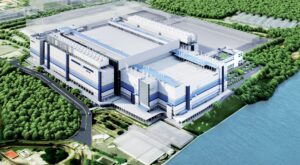A new Singapore AI lab has been launched to fast-track enterprise-scale innovation in AI and Internet of Things (IoT) technologies for the energy, infrastructure, transportation, and manufacturing sectors.
Bringing together industry and academic expertise to deliver edge-to-cloud intelligence, the Global Impact AI Lab (IAL) is the result of a collaboration between technology companies Univers, AMD and Microsoft, and the National University of Singapore (NUS). It is supported by the Infocomm Media Development Authority of Singapore.
Key to the AI lab, launched last week, is its incubation programme. It promises to bring together leading technology, governance, and academic expertise to advance edge-to-cloud intelligence through deep industry-academic collaboration.
The lab focuses on boosting efficiency three ways. First, in operations, by connecting assets and systems for smarter operations that are more reliable and productive. Second, through energy efficiency, by pptimising generation, storage, and consumption through AI. Finally, it is expected to grow system efficiency to enable ecosystem-wide collaboration through AI-powered integration
Businesse that may benefit from the lab include Starbucks, which has worked with Univers on an AI solution to make 7,500 stores more energy-efficient. Separately, Microsoft is partnering with Univers to improve energy efficiency in data centres. AMD is collaborating on edge-AI pilots for retail, renewable energy, and manufacturing environments.
According to Univers, this ecosystem approach to turning AI and IoT concepts into scalable, commercially viable solutions is expected to provide enterprises with faster decision-making, operational agility, and a sustainable competitive advantage.
“AI and IoT achieves its full potential when powered by strong partnerships,” aid Michael Ding, global executive director of Univers. “IAL unites leading industry and academic expertise to transform innovation into enterprise advantage.”
Each IAL partner is said to bring value to the collaboration. AMD will focus on real-time, secure AI at the edge for mission-critical distributed operations, while Microsoft will contribute expertise to optimise infrastructure and operations through integrated AI and cloud platforms.
For NUS, the focus is on developing AI talent that bridges research and real-world enterprise applications.
“Through the Global Impact AI Lab, our students will gain hands-on experience, mentorship and opportunities to apply their learning to address real-world challenges, helping to shape the next generation of AI-ready talent.” said Professor Bernard Tan, senior vice-provost for undergraduate education at the university.






